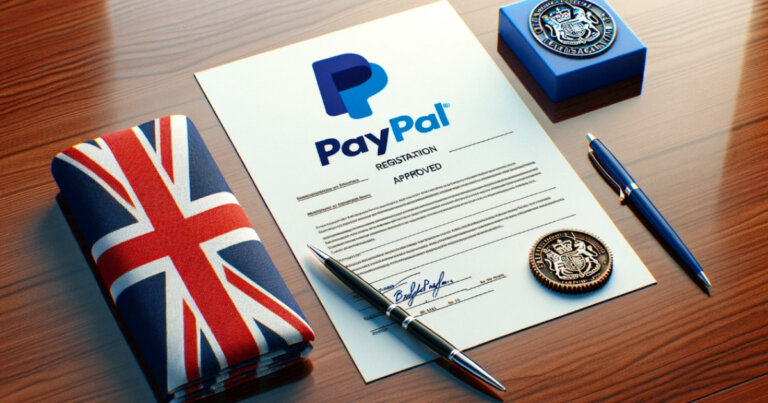 PayPal registered to offer crypto services in the UK, with restrictions
PayPal registered to offer crypto services in the UK, with restrictions PayPal registered to offer crypto services in the UK, with restrictions
PayPal is restricted from offering certain crypto products despite its registration with the UK authorities,

Cover art/illustration via CryptoSlate. Image includes combined content which may include AI-generated content.
Payment giant PayPal has successfully registered with the United Kingdom’s Financial Conduct Authority (FCA) to offer crypto services in the country, according to the regulator’s website.
The registration, effective Oct. 31, allows PayPal to undertake certain crypto asset activities with the FCA’s permission.
Registered, but restricted
Despite PayPal’s registration, the payment processor still faces several restrictions in its crypto activities in the U.K.
Without the FCA’s permission, PayPal cannot onboard new customers or allow old ones to buy new crypto assets. The firm is also restricted from crypto stakings, DeFi activities, and initial coin offerings (ICO), amongst others.
Also, PayPal is restricted from expanding its current offering in crypto assets or operating “a machine which utilized the automated process to exchange crypto assets for money or money for crypto assets” without the FCA’s approval.
However, PayPal registration contrasts with the exit of numerous crypto firms from the country. Since the FCA’s crypto promotion regime became effective, several firms, including Binance, have exited the country due to compliance-related issues.
Notably, PayPal previously paused its services in Aug. as part of the compliance process.
U.K.’s crypto regulatory drive
On Oct. 31, the U.K. Treasury published a proposal on crypto regulation following its consultation process.
According to the proposal, the authorities intend to integrate crypto activities into the financial services regulation, meaning that all crypto-related firms will require authorization from the Financial Conduct Authority to operate in the country.
The document also noted that crypto firms must give the FCA full disclosure about specific activities.
Besides that, the U.K. parliament recently passed a bill that allows law enforcement agencies to confiscate cryptocurrency assets linked to criminal activities, including money laundering, fraud, and ransomware attacks.



 Farside Investors
Farside Investors 


 CoinGlass
CoinGlass 































































































